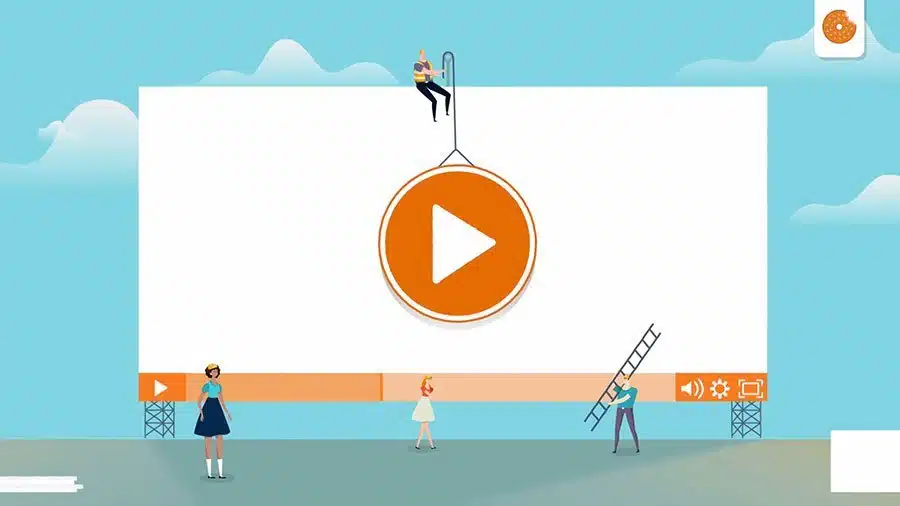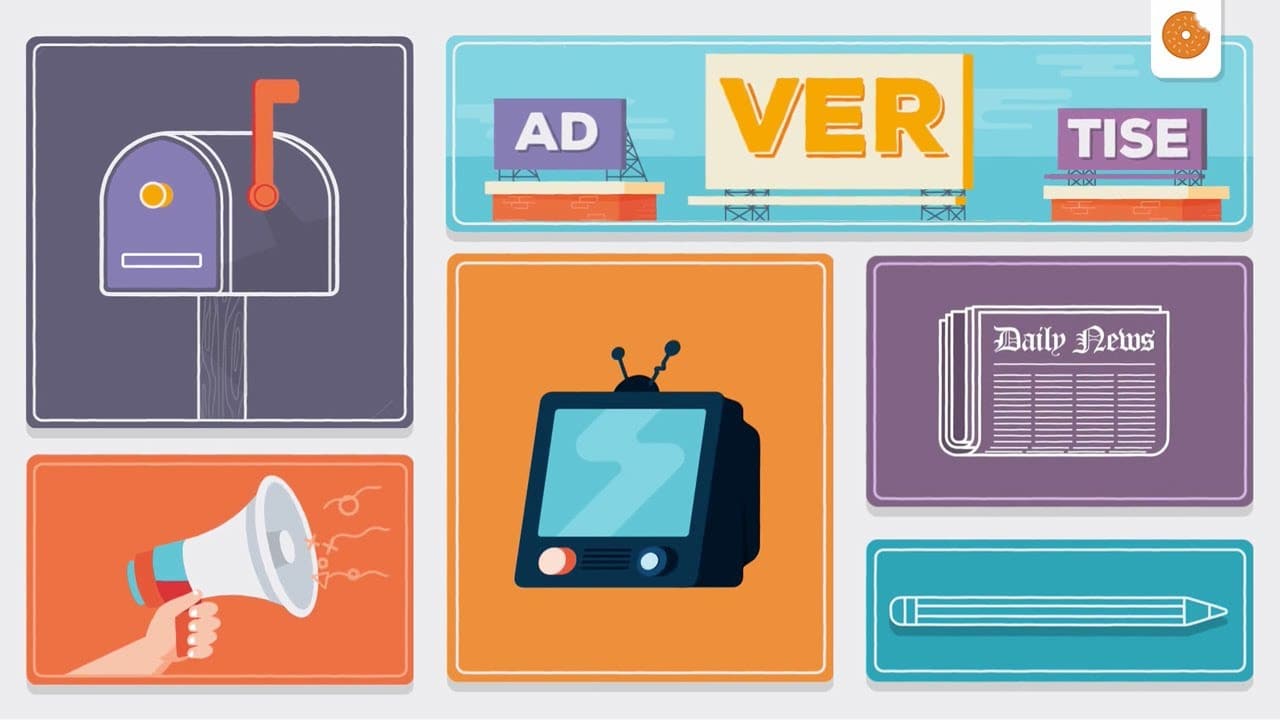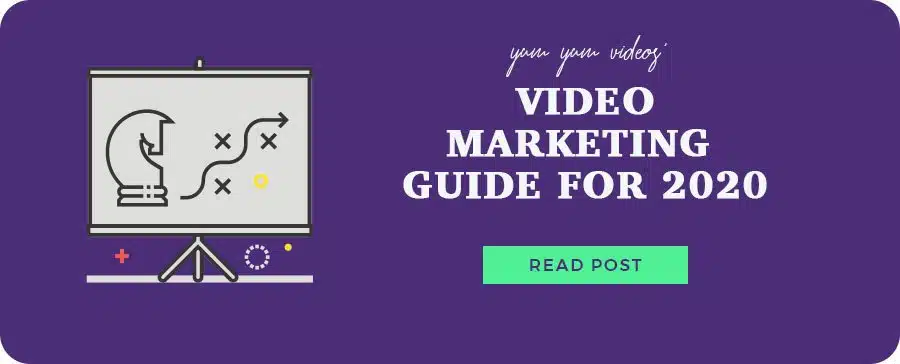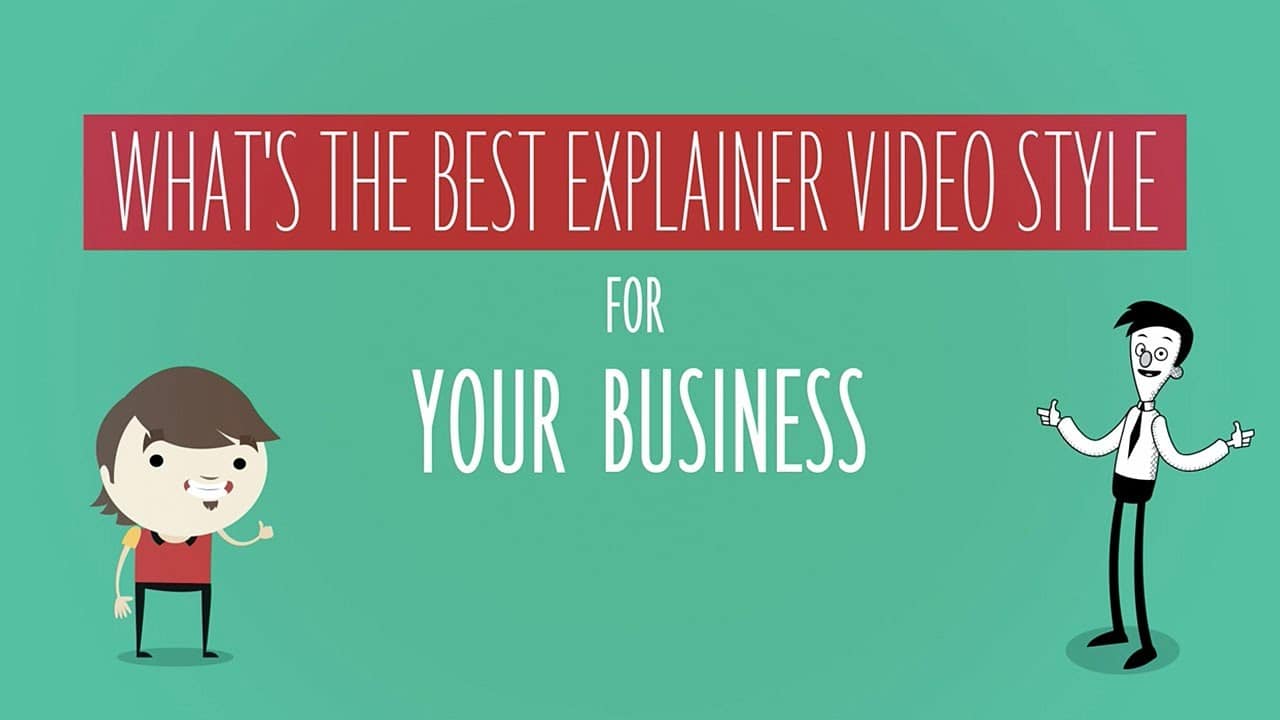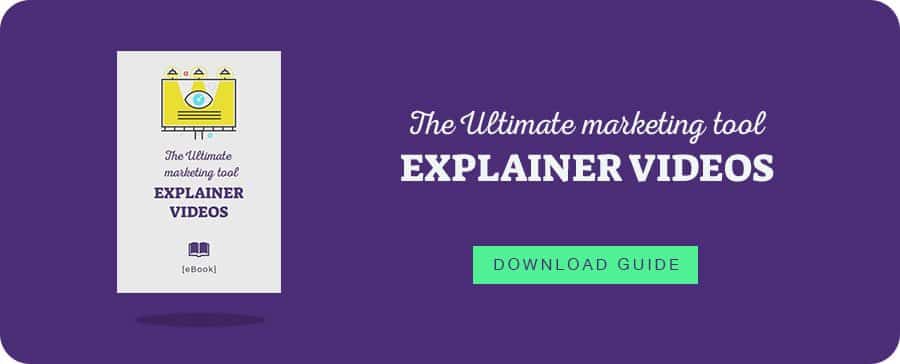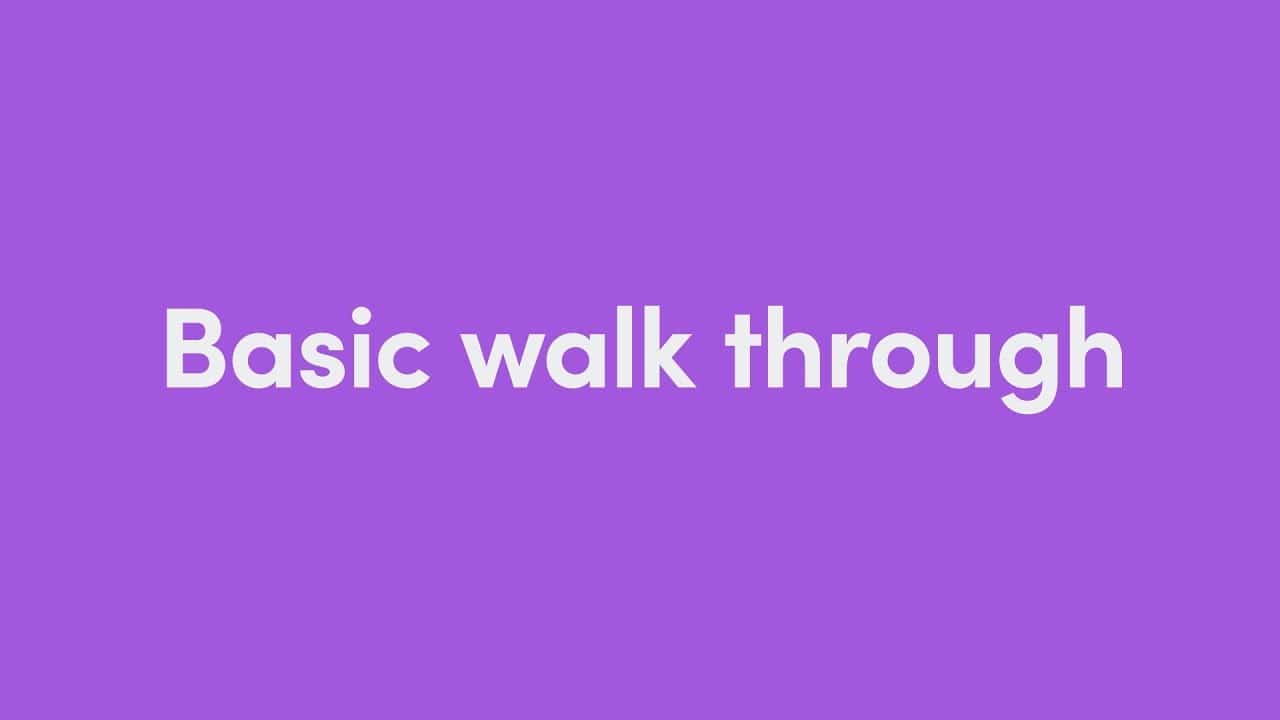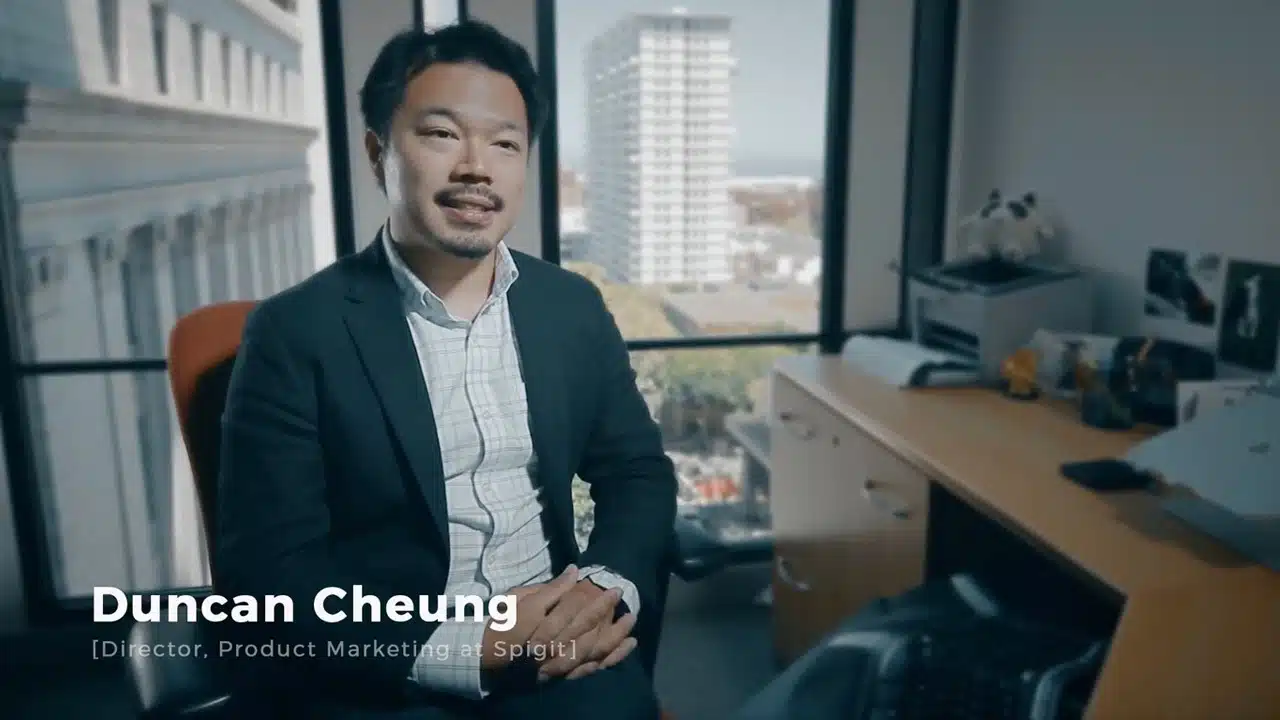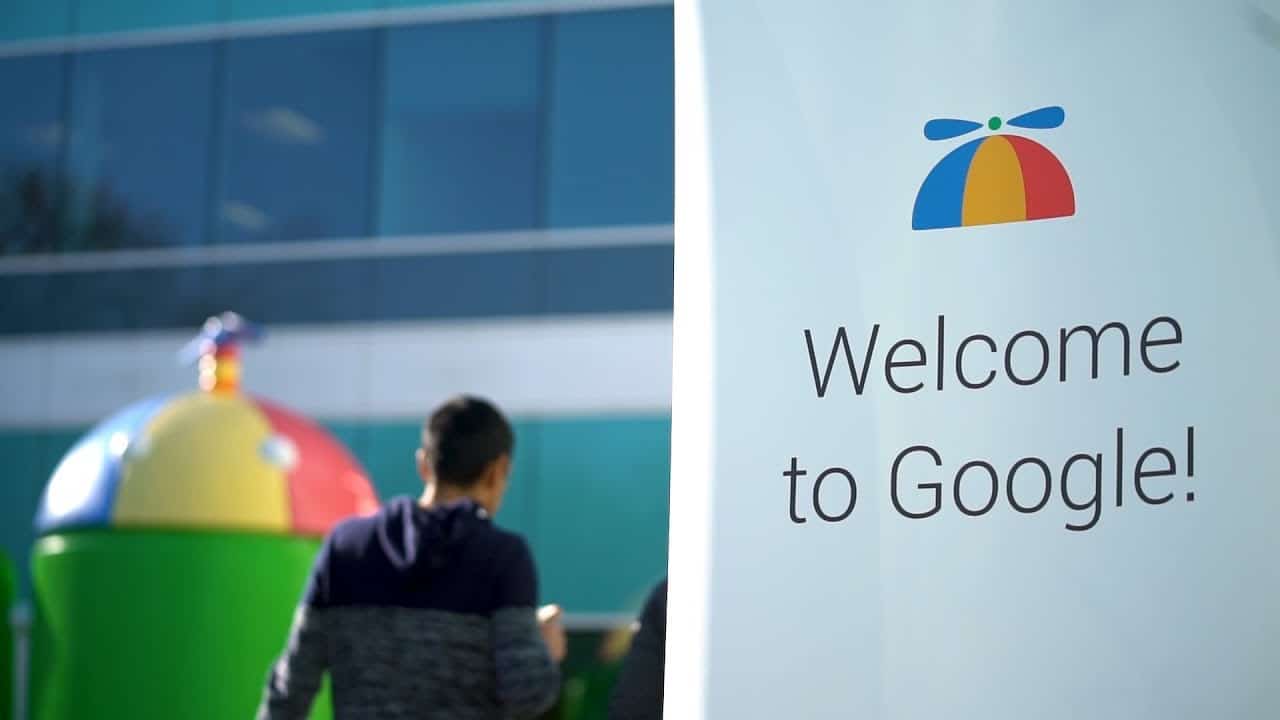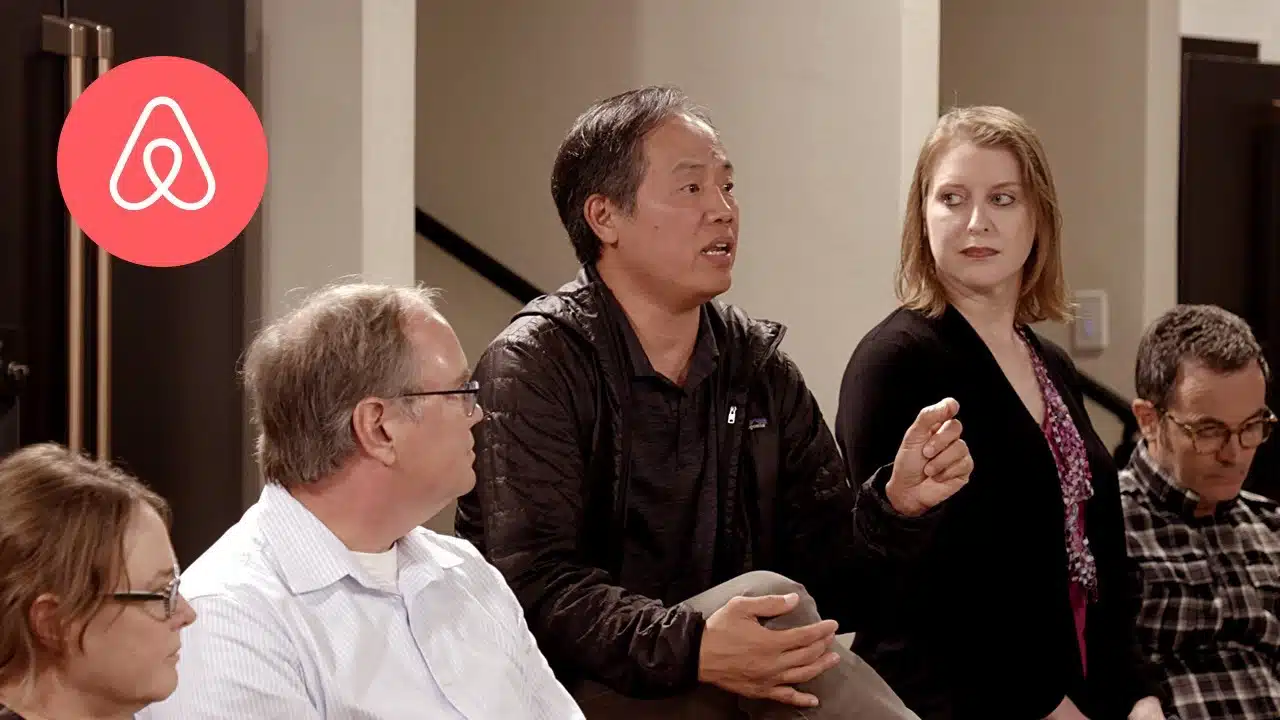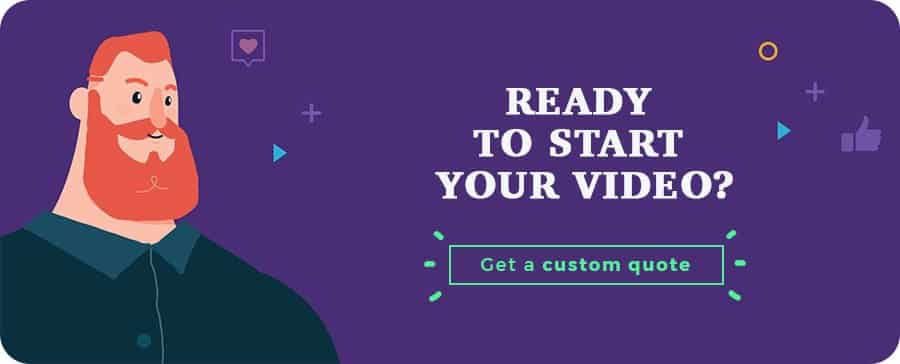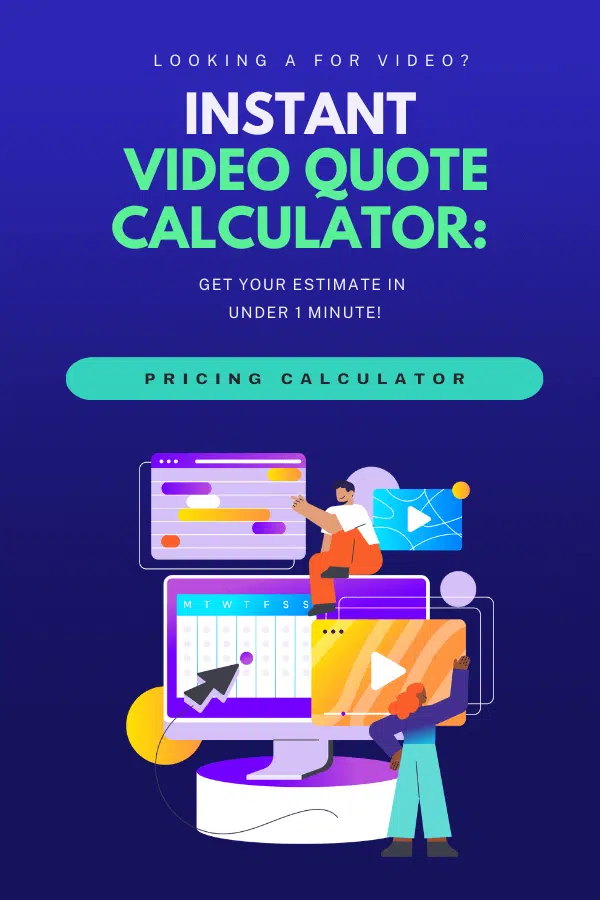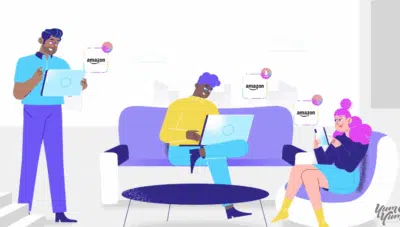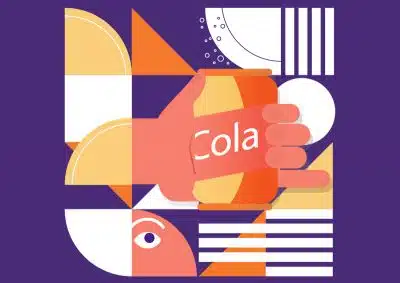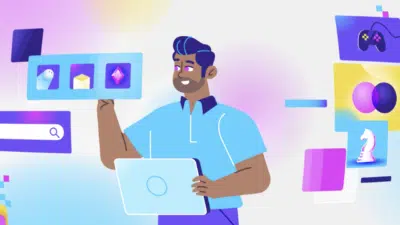13 Types of Video Content you Should Know – and How to Use Them!
12/06/20
Author: Victor Blasco
16 min reading
Marketing

You may have no issue understanding the theory behind your audience’s journey. But it’s not always so easy to realize what your role – as a company or marketer – should be in this equation.
After all, customers are the protagonists… So, where does that leave you?
Well, you might want to rethink your place here in terms of a guide or a director. Letting people walk on their own, but providing the right cues at appropriate times to keep things on course and arrive consistently at the appropriate conclusion: a conversion.
“Think of Inbound Marketing as the way we do marketing nowadays. It’s a strategy based around attracting customers by creating valuable content and experiences tailored to their needs and wants”
It’s not something you can do all at once, though. Each stage of the buyer’s journey calls for different content to address different marketing objectives: attracting customers, converting them, closing sales…
So today at Yum Yum Videos, we are going to explore the ideas of inbound marketing and the buyer’s journey from a video standpoint, pinpointing the styles that are most suited for each stage.
Content:
1. Understanding Inbound Marketing
5.2. Testimonial Videos or Case Study videos
5.3. Company Culture or ‘About Us’ videos
5.5. Tutorial Videos or How-tos
Table of Contents
1. Understanding Inbound Marketing
Think of “inbound marketing” as the way we do marketing nowadays. It’s a strategy based on attracting customers by creating valuable content and experiences tailored to their needs and wants.
In contrast with “outbound marketing” – which interrupts audiences with content they don’t want – Inbound aims to form connections with them by addressing the needs and problems they already have.
The best way to do so? Adapting to and taking advantage of the process that each customer goes through every time they purchase something: The Buyer’s Journey.
2. The Buyer’s Journey
The “buyer’s journey” is a model to cover the process every customer goes through before purchasing a product or hiring a service.
It starts when a potential client realizes they have a problem. It continues as they begin researching products or services from various companies as potential solutions. Once they’ve found one they like, the journey ends as they decide to go for it and commit to a purchase.
“Naturally, you won’t be able to target all the stages with a single piece of content, as different kinds of videos work better for one or the other”
Now, it may seem like a linear process, but it’s not. The buyer can go back and forth between the stages. For example, if something goes wrong when they are on the verge of buying, they’ll go back to search for another solution.
To keep that from happening, you should consistently give them content that keeps them moving from one stage to the next. The best way to do that is to identify what your buyer needs to hear in each stage and create an appropriate video around it.
Naturally, you won’t be able to target all the stages with a single piece of content, as different kinds of videos work better for one or the other.
3. Awareness Stage
Here’s where the buyer’s journey starts; when your potential customers find out they have a problem ―a.k.a.: a pain-point. The thing is, they don’t fully understand this problem yet, so they start researching it.
Customers at this stage aren’t ready to buy yet, so you shouldn’t be trying to hard-sell your product or service. Instead, you should help buyers’ research by educating them about their pain points while getting them familiar with your brand and products.
● Educational Videos
This stage gives you an excellent opportunity to show your expertise – and earn people’s trust – by teaching them about what’s bothering them. Your audience is trying to get a deeper insight into their pain points, and there’s no better way of giving it to them than through an awesome educational video!
When it comes to learning something new, people tend to favor videos over text. It’s no coincidence that the keywords “how to” are more popular in YouTube’s searches than in Google’s. After all, videos present information in a more understandable and entertaining way.
Educational videos are there to provide information about something without an overt attempt to promote or sell. By creating truly helpful educational content, you get people talking about it and sharing it with others – increasing views, organic ranking on search engines, and overall brand exposure.
Just remember: your goal here is to attract, educate, and present your audience with an opportunity to get acquainted with your brand. While subtly leading them to the next stage of their journey!
● Commercial Videos
If, on the other hand, you are looking to generate brand awareness in a short timeframe, you might want to consider commercial videos.
Commercials don’t really need an introduction – you probably already know them well from TV spots and the like. They come in handy when you don’t have enough time for organic rankings or when you need to reach out to an audience on short notice.
With commercials, you aren’t so much trying to educate an audience, but rather advertise your brand and products. These videos tend to be clearly promotional, but aren’t necessarily trying to close a sale then and there. Instead, commercials strive to spark general interest and boost brand recognition.
They tend to be rather short, which incidentally makes them a great fit for social media platforms and online ads. But do keep in mind that it’s harder for commercials to rank organically in SERPs! So, you’ll want to allocate some of your marketing budget to paid advertisement to go along with your video.
● Branded Videos
Branded videos are just a perfect way to create meaningful connections with your potential – and existing – customers.
At their core, branded videos are there to deliver a message that connects with your audience’s emotions. They can be educational or entertaining, but more often than not, they are there to raise awareness on a topic relevant to your company.
Branded videos don’t try to outright promote your business, though. Sometimes, your name will hardly even appear in them! Still, they are designed to reinforce your brand’s image by delivering relevant messages in your brand’s unique voice and closely tied to your niche.
You’ll find that most videos in this category are rather short and, just like commercials, work really well as social media content.
● Social Media Videos
An increasingly important style as of late, social media videos are becoming a fixture of most marketing campaigns for good reason.
In terms of mechanics, these videos can be a bit of everything – from explainer to commercial and everything in between! What defines them as “social videos” is the fact that they are meant – and designed – to be shared on social platforms.
They tend to be short, as most marketing videos are, but they also tend to be broad in scope. While other styles try to focus on inspiring, informing, or entertaining, social media videos work best when they can do all three!
They live or die by their first few frames, as for any video to work on social media, it needs to capture viewers’ attention right away. Moreover, social videos tend to revolve around a singular concept or primary idea since social platforms tend to favor more straightforward content.
4. Consideration Stage
At this point in the journey, customers have had time to familiarize themselves with their problem and are looking to address it.
They still aren’t ready to buy, mind you, but are actively looking for solutions – Products and services that could help their situation or fulfill their need. That presents you with the perfect stage to show them exactly how it is you can help. To show them what your products can do for them.
“They are actively looking for solutions”
● Explainer Videos
Now that your awareness stage’s content has brought them to you, it’s time to let people know exactly what it is you can do for them. Enter explainer videos!
Explainer videos are all about letting people know how they can benefit from your product or service. How you can address their pain points and change their situation for the better – and do a better job at it than your competitors!
Their main objective is to get the “conversation” around your products started. Generating leads as you deliver clear and effective messages that prompt them further down your sales funnel.
Explainers combine effective storytelling with meaningful visuals and animations that engage viewers from the get-go. Strategically addressing all the concerns that they are most likely to be struggling with at this stage of the journey.
It is this sort of highly optimized design that lends the style its effectiveness and why you often see explainers as the cornerstone of many a successful marketing strategy!
Our explainer video agency has produced nearly a thousand explainers for businesses and startups in a wide variety of industries. If you’re curious about this style and would like to watch more examples, just visit our portfolio.
● Videos Series
Not so much a video “type” as a video “strategy”, Video Series can actually work at any stage of the buyer’s journey. And since there’s no time like the present, let’s discuss them in a bit more detail.
Video Series consists of three or more videos that share the same concept, style, and target the same marketing goals. They are conceived and developed to work with each other – content strategy-wise – to achieve a greater effect than a single video could have otherwise.
When you think about Video Series, think about synergy.
These videos are often created with the long game in mind since a video series should stick around for quite a while. Incidentally, effective Video Series often revolve around topics that are both closely knit with your niche and bound to remain relevant over time.
Now, keep in mind that the individual videos of a series must work as standalone content as well, even if they end up having a greater impact as a whole!
5. Decision Stage
At last! The journey’s end is in sight, and your potential customers are now ready to make a buying decision.
Potential customers are now ready to make a buying decision. They already know your brand and what it can offer to them… BUT. Potential customers want to make sure they are making the right decision by choosing you instead of someone else. So, it’s time to reinforce the rapport and trust you’ve been building up until this point.
● Product Videos
There are few pieces of content as effective to give potential buyers that little final push than a well-made product video.
Having doubts is par for the course of the buying experience. Doubly so now, in the era of eCommerce, where people can’t have hands-on experience with your products. Fortunately, product videos are built to circumvent that by focusing on your product’s characteristics and how it works.
They excel at showcasing uses and benefits, doing away with ambiguity, and ensuring your potential customers understand precisely what to expect from your products. This showcase can be as simple or as technical as your target audience allows. That said, the more approachable your video is, the broader the audience you’ll be able to cater to.
Keep in mind that product videos work for physical products as well as digital ones. In which case, you can use a digital tour or screencast to demonstrate how it works.
And remember, now is the time to try and close that sale. Nobody watches a video for a product if they aren’t interested in buying it at some level, and that leaves room for more direct sale tactics in your content!
● Testimonial Videos or Case Study videos
When it comes down to overcoming last-minute resistance from a potential buyer, few pieces of content can be as effective as the right testimonial video.
Few people take the final plunge to complete a purchase if they don’t trust you completely. Moreover, as social creatures, peer validation often holds sway over our decision-making process. Testimonials videos leverage those things to their favor.
The building blocks for these videos are rather straightforward: Have former customers describe their experience with your brand and comment on how your product helped them. Do it right, and any viewer sharing a similar situation will be able to identify with them and consider benefitting from your solution (your product) as well.
Having said all that, whether your testimonial works or not hinges on a singular characteristic: authenticity. Any hint of rehearsed or fake content could potentially backfire on your strategy! So, it’s always best to share real stories from real clients.
● Company Culture or ‘About Us’ videos
Did you know that people are far more likely to close a deal with a brand they feel personally close to? That’s what culture videos – or company story videos – are all about!
These are pieces designed to foster empathy for your potential customers by humanizing your brand – which can be invaluable at this last stage of the funnel. And they accomplish it by showcasing your company’s values, mission, vision, and the people that make them possible — or by promoting causes and messages that have an impact beyond your commercial endeavors.
Now, that can be accomplished in a variety of ways! Some tell the story of a company’s origin, others showcase an event at the company or simply create content around significant or meaningful events.
However they go about it, though, culture videos are there to portray an appealing brand image. Something that, more often than not, comes hand in hand with a good story 🙂
● FAQ Videos or Q&A Videos
People are unlikely to commit to a purchase when they are unsure about your brand or the products you offer. FAQ videos make sure that’s never an issue for you.
FAQ videos are built around the things your customers and potential customers ask about your company or products. In a way, you are anticipating potential doubts that might keep them from finishing their journey to facilitate a sale. They also do a great job of lessening the load on your customer service staff.
After all, why spend time waiting to ask something so they can just go to your site and watch a video? One that will take less time and address their queries in a clear and fun way? Yes, fun! FAQ videos should deliver information accurately and professionally, but the ones that work best are dynamic and entertaining as well!
FAQ videos show that your company cares about its customer’s experience and listens to their concerns. All desirable attributes in a business you are considering making a purchase from.
● Tutorial Videos or How-tos
Tutorials, or How-to videos as they are most commonly known, can be an incredibly powerful marketing tool in the right hands.
A type of educational video, Tutorials stand apart as a class of their own due to their particular structure and language. They revolve around specific processes or tasks and focus on providing viewers with step-by-step explanations of how to carry them out.
It is that singular premise – so closely tied to providing value to the viewers – that makes tutorials, or more specifically, ‘How-tos’ one of the most searched-for types of content online!
For tutorials to be effective, though, they should be simple and clear. Nobody wants a tutorial that requires an explanation of its own. But maybe, most importantly, you’ll want to stick to the procedural nature that has made these videos so popular.
Do it right, and you have a video that can not only educate your audience and generate interest but also help with complex marketing goals like cross-selling and up-selling.
Bonus Videos:
But before you go, there are two more types of videos we feel you should know about.
● Internal Videos
Internal videos earn an honorable mention in this piece due to how beneficial they can be to a business!
Internal videos aren’t meant for your potential customers; they are all about your employees. Effective communication is essential to any company’s performance, and as we mentioned before, no other type of content does ‘effective communication’ better than videos.
Now, how you use internal videos will vary depending on your message and company needs. But whatever it is you are trying to convey, they make sharing vital information within your company a breeze.
They are wildly popular for employee training and development, as they can dramatically lower costs and provide better results than traditional capacitation methods. That said, internal videos are also often used to convey sensitive information in an appropriate manner within the company. Ensuring everyone in your team is on the same page about the things that matter.
● Behind-the-Scenes Videos
We already established that audiences are far more likely to do business with a brand if they feel personally attached to it, and that’s probably why these videos are growing so quickly in popularity.
Behind-the-scenes (BTS) videos earn the second honorable mention here due to the positive effect they tend to have on viewers. People love to peek behind the curtain and see the wizard pulling the levers, and that’s what these videos are for.
BTS videos don’t need to be too terribly involved or overproduced; on the contrary! They tend to be less polished than traditional marketing videos since audiences expect and embrace spontaneity.
Much like company culture videos, BTS videos can be a boon when you are trying to build consumer trust and brand loyalty. So it’s worth keeping them on your radar.
7. Wrapping Up
Marketing videos are most effective when used as part of a plan, and that means understanding when and how to use them to get the best results! Understanding your customers’ journey and the types of videos that best fit each stage is a fantastic way to make the most of them.
Hopefully, what you read here today will help you make better, more informed choices for your strategy. And help your customers navigate their journey to a safe destination 🙂

Victor Blasco – CEO & Marketing Strategist
Víctor Blasco is the founder and CEO of Yum Yum Videos, an explainer video company. He is also an audiovisual designer and a video marketing expert. When he's not running his business, Víctor enjoys studying Chinese philosophy and geeking out over science fiction films and comics. The Force is strong with this one!
